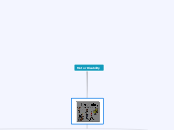Motor Disability

Traumatic Injuries
Spinal cord injury
can result in a state of paralysis of the limbs.
Paralysis of the legs is called paraplegia
Paralysis of the legs and arms is called quadriplegia.
Loss or damage of limb(s)
Diseases and Congenital Conditions
Cerebral palsy
is an injury to the brain resulting in decreased muscle control
fetal development
at or shortly after birth
Muscular dystrophy
Genetic disorder in which the genes for muscle proteins are damaged
The progressive degeneration of the muscles
People at any age
Is most common in children
Multiple sclerosis
The nerve fibers incapable of sending signals from the central nervous system to the muscles of the body.
Tremors.
Weakness.
Numbness.
Unstable walking.
Spasticity.
Slurred speech.
Muscle stiffness.
Impaired memory.
Severe cases can result in partial or complete paralysis.
Spina bifida
Congenital condition in which the spine fails to close properly during the first month of pregnancy.
the membrane around the spinal column to protrude through the back,
fluid can accumulate in the brain, which may also cause damage to the brain.
